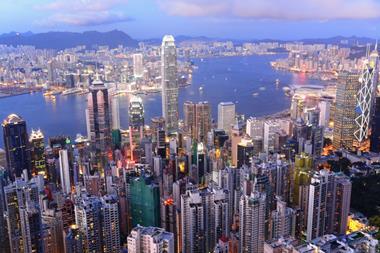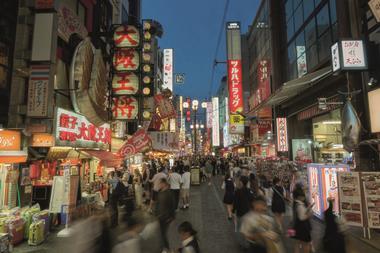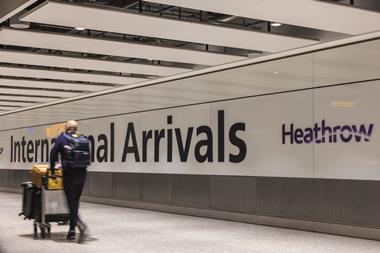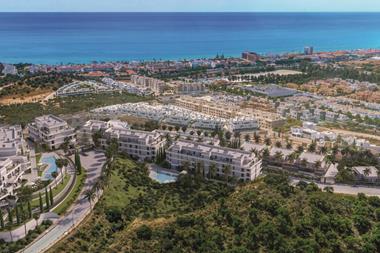Hong Kong’s housing boom has led property prices to nearly double in the past decade, even as doomsayers kept sounding the alarm bells.
Several analysts, however, have recently said real estate prices, particularly in the residential sector, might finally start declining, as the main factors that have been contributing to rising prices – ample liquidity in the aftermath of the US Federal Reserve’s quantitative easing policies and robust demand from Chinese investors – could finally be coming to an end.
Amongst those sounding a note of caution on high property prices is UBS Group, which expects real estate prices to drop by more than 10% by the end of 2016.
The report by UBS CIO Wealth Management highlights “the risk of a residential property bubble” in the Asian city, along with London.
Hong Kong housing prices have “decoupled from the local economy and are at significant risk of entering a downward cycle should the international attractiveness of the city come into question”, it said.
In addition, Hong Kong brokerage firm CLSA sees the residential property market losing as much as 17% by 2017, while CBRE expects a 5-10% fall on average over the next 6-12 months in Hong Kong’s housing prices.
While that may not be very good news for the local landlords, residents are likely to breathe a sigh of relief.
Hong Kong’s real estate prices have risen by nearly 60% since 2006, and almost 200% higher than 2003, when the market bottomed after the Asian financial crisis.
The burst of the last housing bubble led to a nearly 60% decline in real estate prices between 1998 and 2003.
Analysts ask whether a hike in interest rates would be the straw that breaks the camel’s back, though few see a major crash, unless in the event of a major economic slowdown, which is unlikely.
Hong Kong’s interest rate mimics those of the US due to the local currency’s peg to the US dollar.
Higher interest rates would come at an inopportune time, just as the demand from Chinese investors was drying up, thanks to the slowing economy, the devaluation of yuan earlier in the summer and the increasing currency controls put in place to stem the growing outflow of capital.
This explains why, along with the residential segment, demand in the retail sector is already soft, thanks to a significant slowdown in the number of shoppers from China who have been a major boon for Hong Kong retailers, especially in the high-end luxury goods.
CBRE analyst Marcos Chan said: “Retail is a sector undergoing structural changes, and the downturn will probably last for a little longer before rents stabilise.”
He expects rents in the retail space to decline within 6-12 months as leasing momentum remains low, adding that “yields have to move up to justify the falling rents and higher vacancy risks”.
Other segments are slightly more resilient, due partly to Hong Kong’s relatively favourable position as an Asian business hub as evidenced in the commercial real estate sector, which continues to enjoy peak occupancy and low vacancy rates.
While vacancy rates in the industrial sector remain low as well, demand is being hit by a slowdown in global trade and the spillover effects of the lacklustre retail sector.
Analysts, however, say that, since a US rate hike is likely to be minimal, it is unlikely to increase the financial burden on property owners.
This should, in turn, preclude a plunge in housing prices.
The Hong Kong government has put a series of austerity measures in place aimed at discouraging investors from selling while property remains a preferred investment choice in the current environment, unless interest rates rise much further.
Further, real estate analysts say it would be hard to find buyers, even for those who are willing to sell, as most are looking for more attractive deals in the primary rather than in the secondary market.
“Under these circumstances, transaction volume will remain at low levels, but risk of a free fall in prices is lower,” said Chan.
Investors, meanwhile, are watching with caution, as Hong Kong’s economy is highly linked to the real estate sector, not least the stock market, where the property developers and constructions firms account for a bulk of the market capitalisation.
So is the banking sector, with mortgage loans taking up nearly one-third of total bank loan.
One executive at a wealth management firm said: “Since Hong Kong is such a property-focused economy, any decline in the property market would have a major effect on the economy.”





![CBRE Investment Management [Real Estate - Asia]](https://d15duu1h3gsd2d.cloudfront.net/Pictures/100x67fitpad[255]-90/P/Pictures/web/t/j/u/cbreimlogohorizoutlcleanedup01green_654324.jpg)












